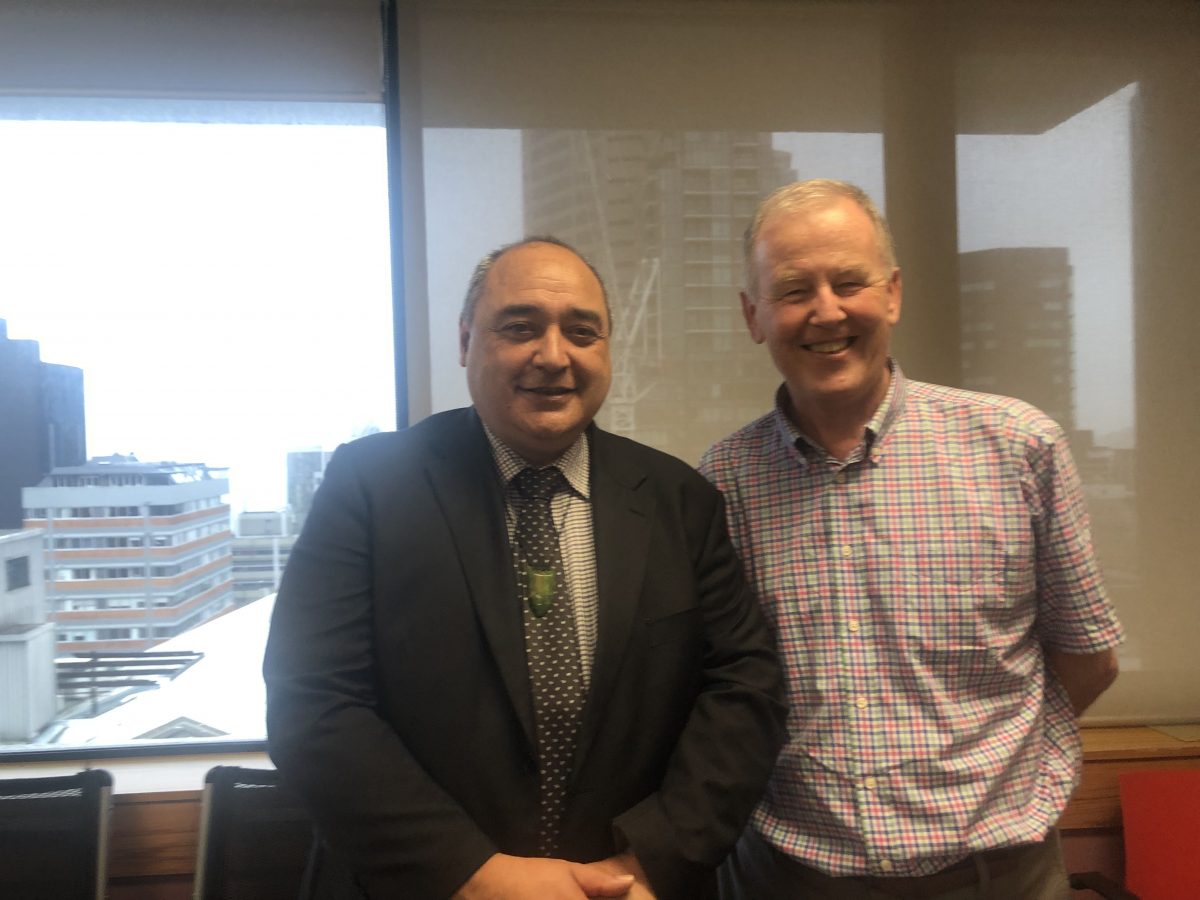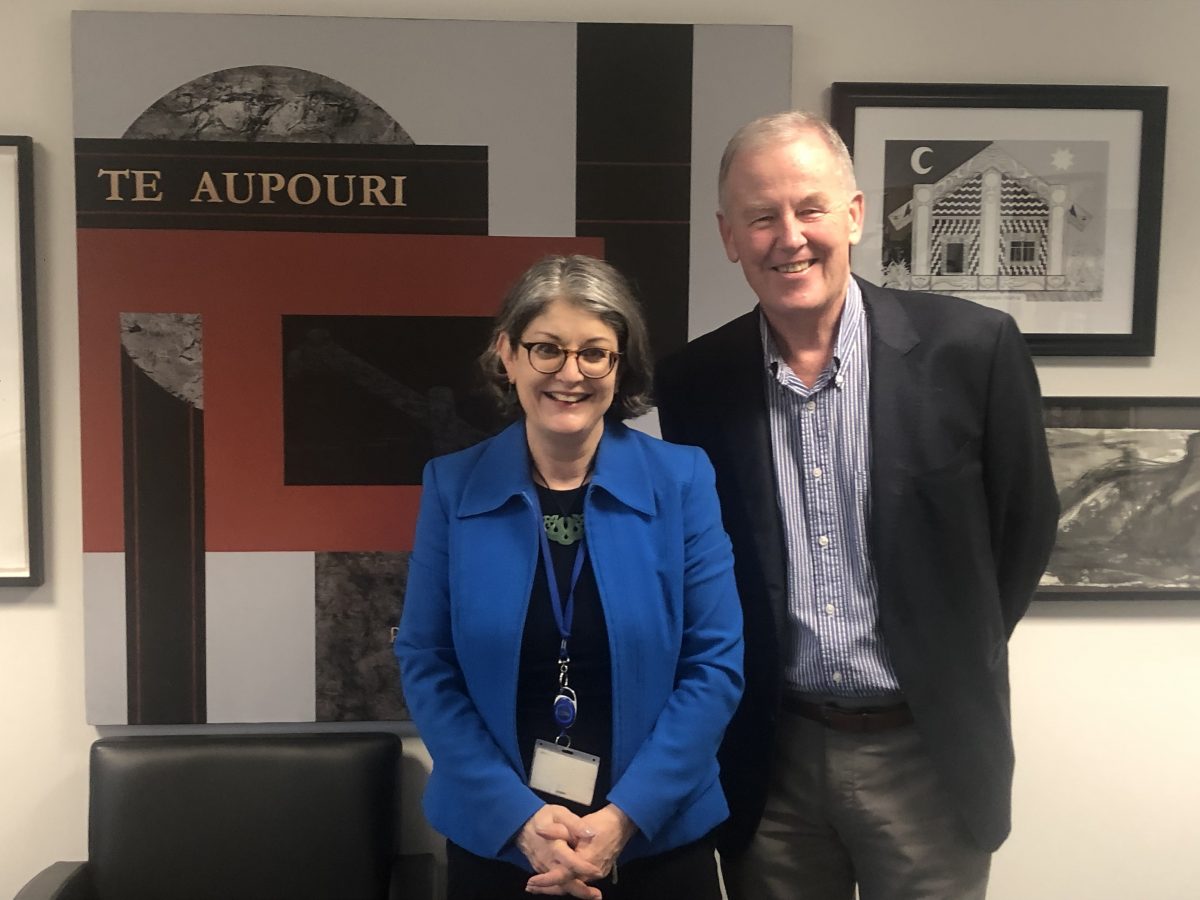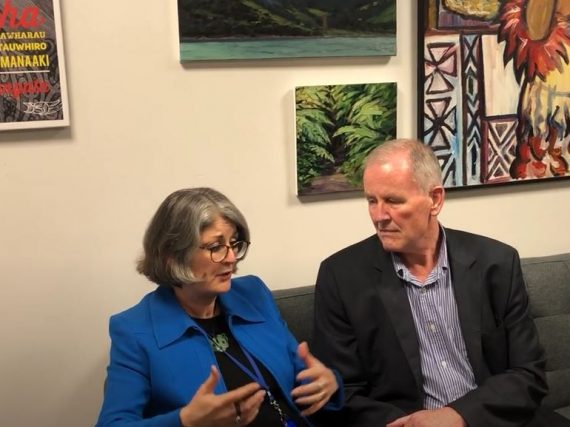Innovative Justice in Aotearoa New Zealand
My recent visit to the Alcohol and other Drug Treatment Court (AODTC) in New Zealand confirmed absolutely that addressing the underlying causes of offending and providing holistic, wrap around support services for people who are addicted to drugs or alcohol is a much smarter way of delivering justice for defendants, victims and the community more generally.
Judge Lisa Tremewan with CIJ Director, Rob Hulls
By CIJ Director, Rob Hulls
The AODTC was established in Auckland and Waitakere as a pilot in November 2012. It was evaluated in 2019, after which it has become a permanent fixture in New Zealand. The Court provides an alternative to imprisonment for people whose offending is driven by alcohol and/or drug substance use disorders.
This innovative Court provides an evidence-based best practice treatment pathway for participants that includes intensive monitoring, case management, drug testing and mentoring. The program includes the integration of Māori cultural practices into court processes, cultural advice and peer support by former participants with lived experience of addiction. This approach has been shown to be transformative and achieves better outcomes for those involved.
An independent evaluation of this approach to justice shows that AODT Court graduates experience better relationships with their extended family or community (whanau), improved health, better connections with work or training and with cultural and spiritual values. Within two years AODTC participants were less likely to reoffend, less likely to be in prison and were less involved with police. The cost of the pilot AODTC was $14.46 million with benefits estimated at $19.19 million without taking into account all of the flow on social benefits of the Court.
This holistic and collaborative approach to justice delivers better outcomes than the traditional adversarial system. The AODTC team is made up of the Police prosecutor, defence counsel, clinical case managers, peer support workers, the Pou Oranga (Māori cultural advisor with experience of wellness and substance use recovery), and probation officers supported by a Court coordinator. The team, led by the Judge, works collaboratively to support participants while still holding them accountable for their offending by requiring them, with appropriate support, to address its underlying causes.
Victims and people affected by crime committed by an AODTC participant can attend Court hearings, give their views to the Court, choose to be involved in a restorative justice conference with the participant and be informed of the participant’s progress through the AODTC. Family and friends of the participant are actively encouraged to provide encouragement and support by coming to Court, providing transport, helping participants comply with bail conditions and other requirements of the Court.
I was privileged to attend the graduation of a number of participants who had successfully completed the AODTC program under the guidance of Judge Lisa Tremewan and her team. This was an extraordinary ceremony celebrating the fortitude and resilience of participants, attended by family, friends, Court support workers, police and probation officers, lawyers, judicial officers and former AODTC graduates. Following their graduation, participants are sentenced to a community-based order rather than a custodial sentence. This order also ensures continuing oversight from probation officers to check on recovery progress along with further oversight from the Judge during this period.
For too long the approach of simply jailing people who offend because of their alcohol and/or drug addiction has failed. The AODTC clearly shows that there is a better, smarter and more innovative way to turn lives around and make the community safer.

Chief District Court Judge, Judge Heemi Taumaunu with Rob Hulls


